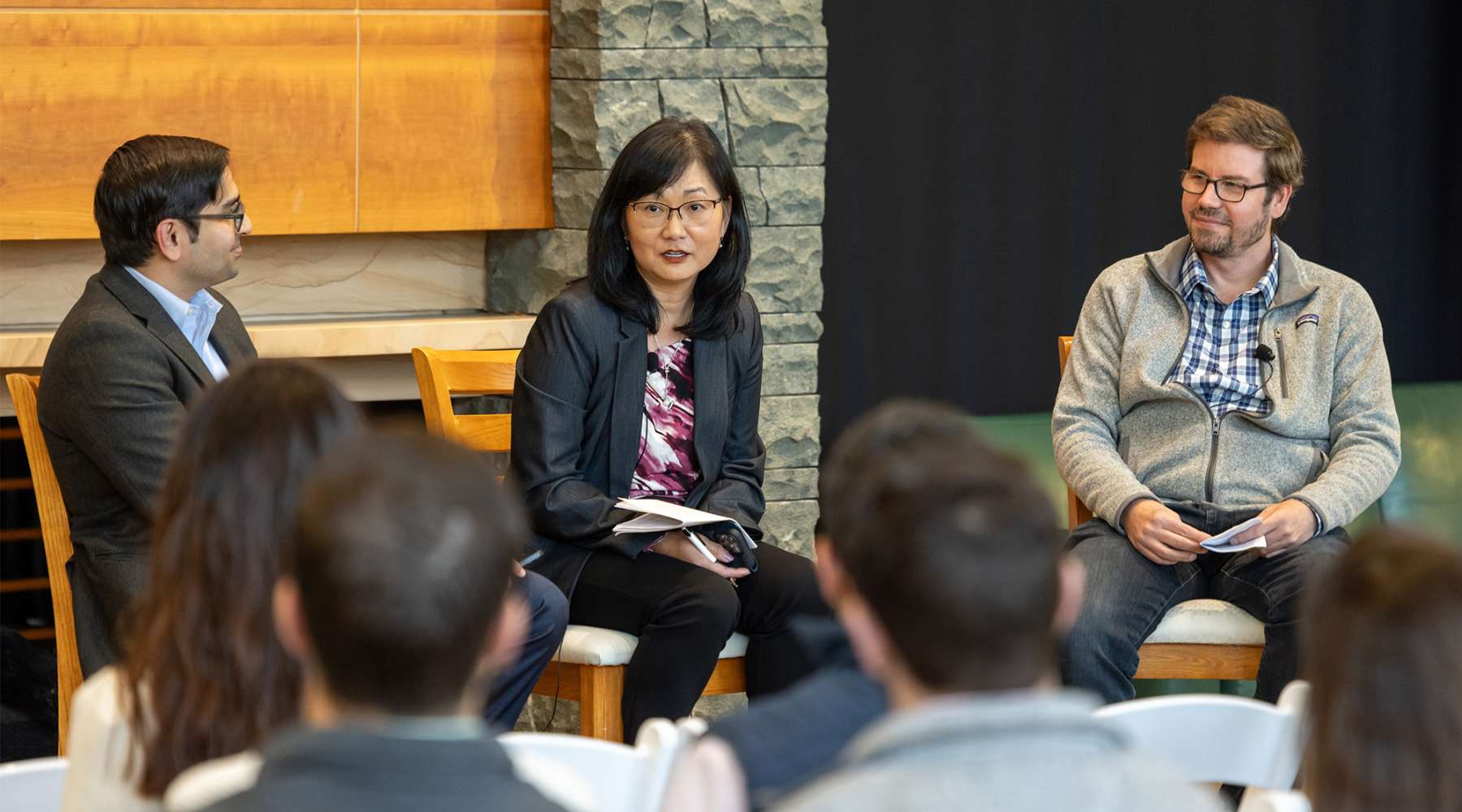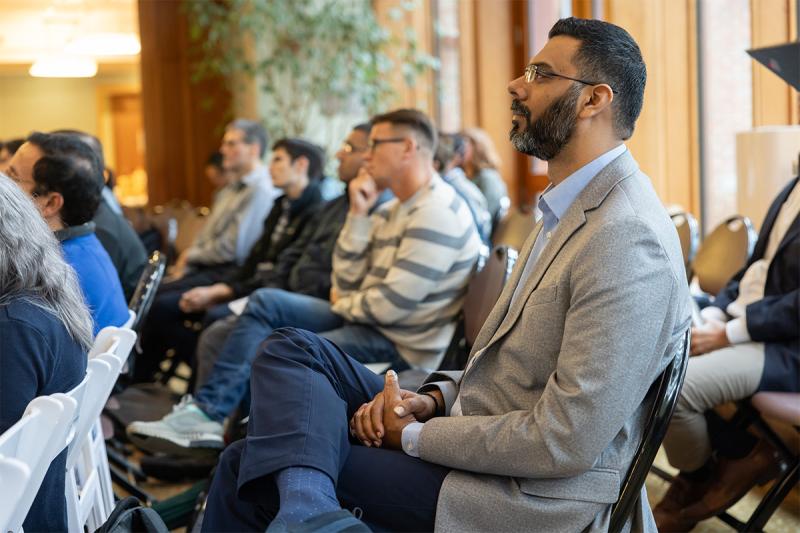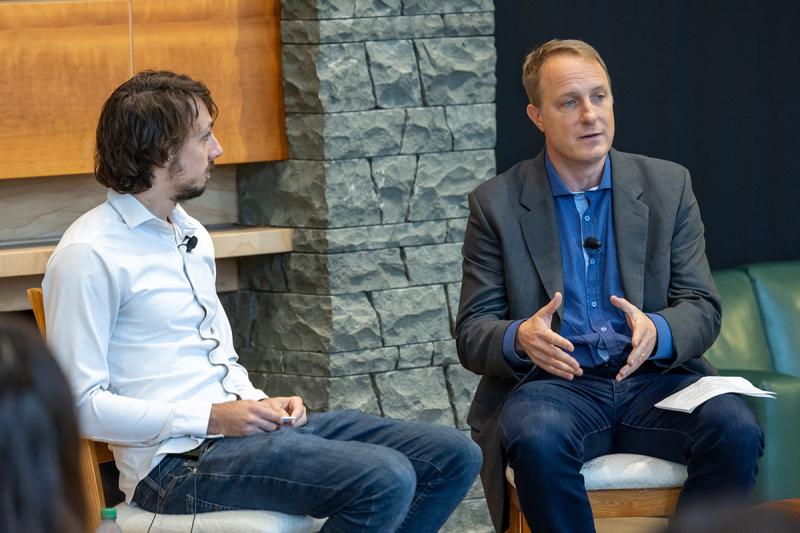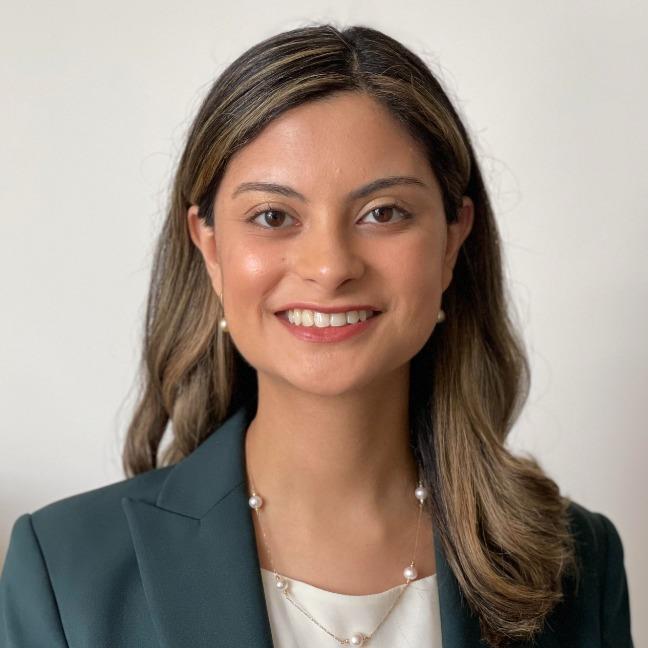
Earlier this fall, the Tuck School of Business’ Center for Digital Strategies hosted the Dartmouth AI Conference at the historical birthplace of artificial intelligence: Dartmouth College. In fact, the term artificial intelligence has its roots from the 1956 Dartmouth Summer Research Project where this field of research was brought to life. Now, nearly 70 years later, the Dartmouth community convened to celebrate the past, examine the present, and explore the future with the groundbreaking advancements of AI across sectors.
Dean Matthew Slaughter kicked off the conference by acknowledging the big opportunity AI has to “change the nature of work and business operations in every industry.” More importantly, advancements in AI will inevitably influence everything from productivity to the makeup of future workforces, while raising important questions on the ethics and applications of responsible AI.

As companies, organizations, academic institutions, governments, and entities around the world are learning how to develop and execute their AI transformation strategies, there are a host of exciting and novel applications being developed. During the conference, students, faculty, and alumni alike had the opportunity to hear from experts and leaders across industries from finance to healthcare. Below are some of my top takeaways.
On Looking Ahead at AI’s Uncertain Future
Bradley Webb T’16, Head of Product and Growth at SurgeAI, shared that the evolution of AI mirrors similar waves that drove the growth of web and mobile technologies. Much like major tech waves from the past, large tech players are making significant investments in building AI’s infrastructure. Simultaneously, they are paving the way for new entrants to solve novel and underserved problems with AI by building on top of these evolving foundational models and platforms.
On AI Development in the Financial Sector
Aditya Bhasin Th’96, Chief Technology & Information Officer at Bank of America, addressed how advanced analytics and AI have helped power tools like Bank of America’s virtual assistant, Erica. Erica is used today by millions of users per month to help with everything from managing subscriptions to understanding spending habits. As the finance sector looks to more advanced applications of AI in the future, some of the top challenges in implementation stem from the lack of explainability and transparency of AI models being used, which regulations mandate today. Overall, there continues to be a need for greater visibility and transparency in AI models.
On Healthcare and AI
Sandeep Dadlani, Executive VP, Chief Digital & Technology Officer of the UnitedHealth Group (UHG), discussed the various opportunities AI has to improve healthcare, from simplifying administrative tasks to providing medical and clinical insights. A focal point is that “AI will not replace the clinician,” but rather AI can support clinical decision-making to create better patient experiences and health outcomes. In healthcare especially, ethical applications of AI become even more critical. Sandeep emphasized the importance that he and his team at UHG place on mitigating biases in data, ensuring explainability, and keeping humans in the loop as key tenants of the responsible use of AI.
On Investing and Innovating in Generative AI
Graham Brooks T’02, Partner at .406 Ventures, discussed critical areas where key investments are being made into AI today, including foundation models, infrastructure, and the application layer. While significant investments continue to go into building AI’s infrastructure and the foundation models themselves, there will be future opportunities to drive innovation at the application layer, where differentiation will be based on pairing functional expertise in the application area with the ability to fit into existing user workflows. On the innovation side, Slater Victoroff, CEO at Mythica and CTO at Indico Data attributed successful use cases in AI being focused on “augmentation” over “automation.” AI solutions that can help turn users into “superheroes” and help to augment their abilities will create the most impact.
On Automation, Robotics, & AI
Marton Sziraczki, Head of Foundational Functions at Waymo (a pioneer in autonomous vehicles), underscored the importance of establishing transparency and accountability to create a sense of trust and safety for everyone who can be impacted by their technology, from the general public to policymakers. Jasmine Lombardi, Chief Customer Officer of Locus Robotics, shared that driving adoption as a robotic process automation company lies in building a company culture focused on the voice of the customer and identifying opportunities to help users upskill with robotic technology, rather than feeling like they are being replaced.

Looking ahead, there are many exciting applications, solutions, and approaches to be developed in this rapidly evolving era of AI. Reflecting on the key themes from the conference, the most successful individuals, startups, and organizations in this space will focus on using AI to build innovative solutions that help “augment” rather than replace human capabilities, while adopting responsible AI best practices.
Special thank you to the Center for Digital Strategies team including Executive Director Patrick Wheeler, Assistant Director Carolyn Catomeris, and Faculty Director and Associate Professor of Business Administration Alva Taylor, along with various individuals across Dartmouth College for their amazing contributions in planning the inaugural AI conference!

Amna Sohail T’24 is a second-year student at Tuck and a Center for Digital Strategies Fellow. She brings prior experiences in strategy and operations at Elevance Health, corporate innovation, and early-stage B2B tech at both a venture studio and VC firm. This past summer, she interned as a Partner Development Manager on the Global Partner Solutions team at Microsoft. Outside of classes, Amna serves as a co-chair for the Tech Club and enjoys hiking, skiing, and hosting small group dinners.